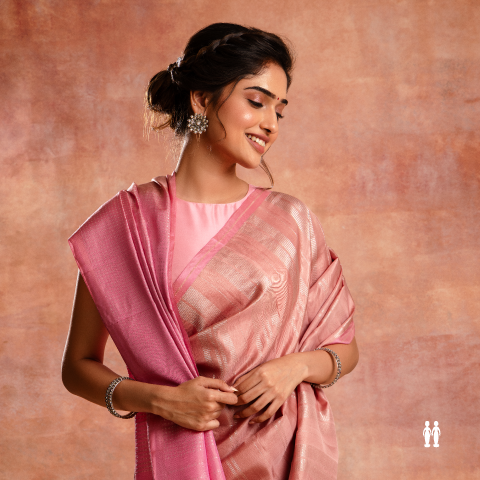"Any cotton-embroidered article that comes from Lucknow" might be the most satisfactory definition of Chikan today. Historians say that the word Chikan was derived from the Persian word “chikin” or “chikeen” which means any kind of embroidered fabric.
The origins of this needlework remain shrouded in the mists of time. The fine Mughal miniature paintings depict Emperor Jahangir in flowy white muslin garments with fine “white” embroidery. Kamala Devi Chattopadhyay opines that chikan could be dated back to the time of King Harsha (590-647 CE), who is said to have had a great fondness for white embroidered muslin garments, with no colour, no ornamentation and nothing spectacular to embellish it. Megasthanes, in 3rd century B.C, had mentioned the usage of “flowered muslin” by Indians in the courts of Chandragupta Maurya.
This ancient form of white floral embroidery with intricate needlework and raw threads which delighted kings and commoners alike vanished in between. This art form was revived later in the Mughal courts during the 16th and 17th centuries. The court servants embroidered elaborate designs onto the nawab's topi or cap. One of the historians attributes the invention of chikan to Empress Nur Jahan, a consort of Jahangir, who had a Persian lineage. Her interest in the craft was a trendsetter in the Mughal courts.

The majority of written accounts trace the art of chikan embroidery to Bengal, from where the artisans migrated to the cities of Lucknow and Awadh to take advantage of the courtly patronage of the Nawabs.
The Chikankari embroidery embellished both men and women’s garments. From the flowy angarkhas and chogas (tunics), achkans and kurtas to topis and cummerbands of men’s garments, it also accentuated women’s lehengas and odhnis. The pure white on white embroidery translated a simple white ensemble into an exotic fashion statement. During the Colonial era, the application of Chikankari embroidery increased manifold and embellished the items exported to Britain - from muslin dresses, collars, table covers and runners to mats, napkins and tea covers!
With the advent of the British empire, the application of Chikanwork embroidery increased multifold and embellished almost everything that was exported - including muslin dresses, collars, table covers, runners, mats, napkins and tea covers.
The vintage patterns of chikan embroidery showcase the artistic skills that were possible through nimble fingers, which were strongly influenced by the Persian and Mughal architecture. The jaalis of Taj Mahal and the walls of the famous Imambara mosque in Lucknow have inspired the many motifs of Chikankari embroidery.

The needlework of Chikan has about 32 different stitches which are used separately or in a combination. The 6 basic stitches which make it unique are the Tepchi (back running stitch), Bakhiya (double backstitch), Hool (eyelet), Zanzeera (chain stitch), Rahket (stem stitch) and Banarasi. The Chikankari stitches fall mainly into two main categories - one having a flat surface using a single thread, and the other making an embossed effect using as many as 12 threads.
In the Tepchi stitching technique, the embroidery resembles a woven effect on the fabric, with small knots that create a pearl-like effect are called Phanda.

The Chikankari embroidery cluster is one of the biggest artisan clusters in India, with about 2.5 lakh of hand artisans who are certified with a Geographical indication to protect the identity of the handicraft. The design for embroidery is done entirely by hand without using any frames. The embroidery design is first transferred to the fabric using carved woodblocks, and then the stitches are done on it. A combination of soap, soda, bleach and neel are used finally to remove the printing ink marks and also impart brightness to the fabric.
The Chikankari is yet another art that showcases India’s indispensable master craftsmanship!






